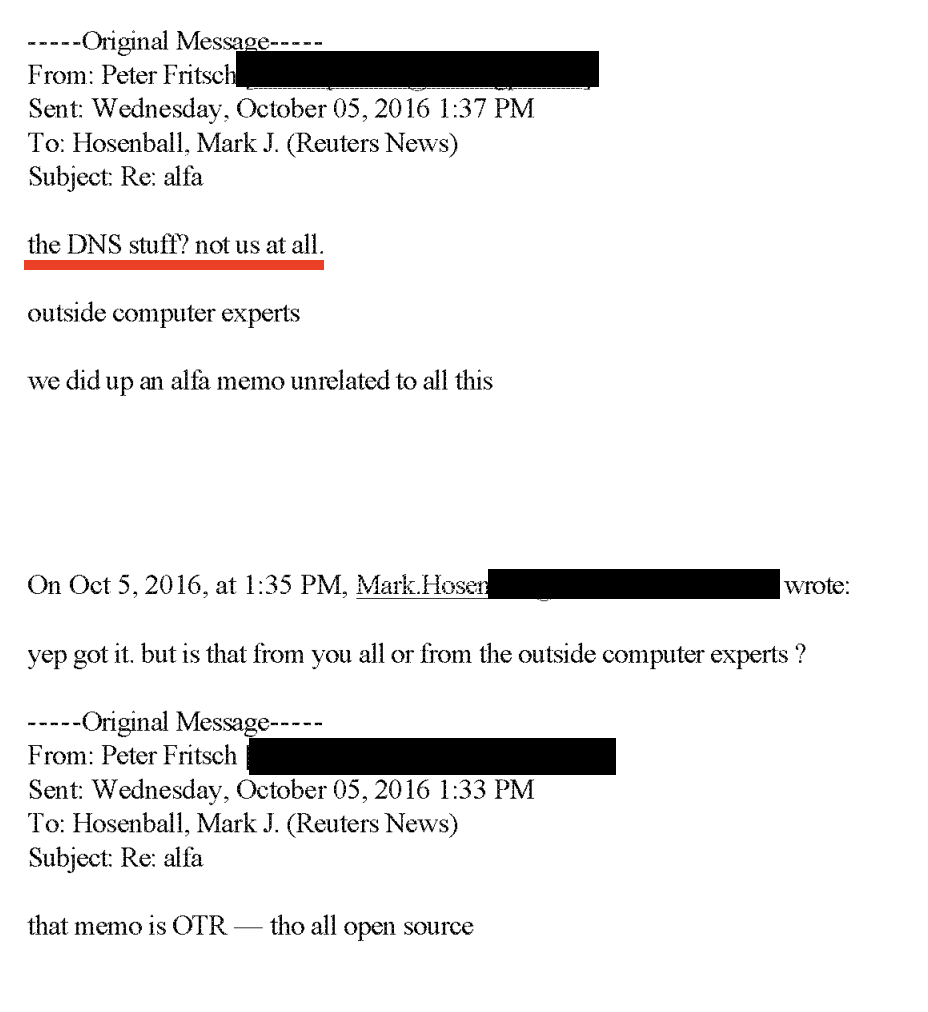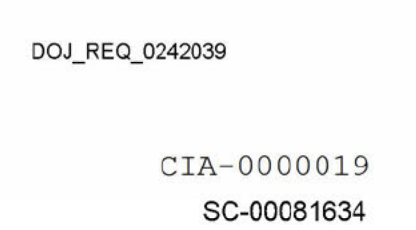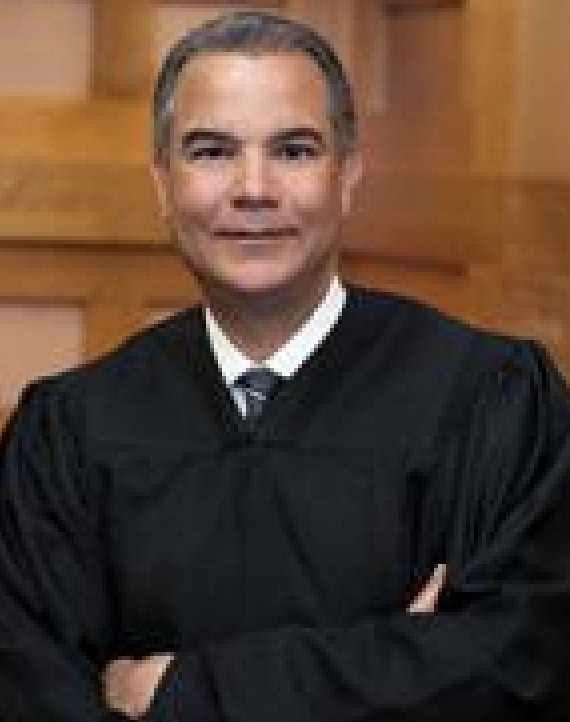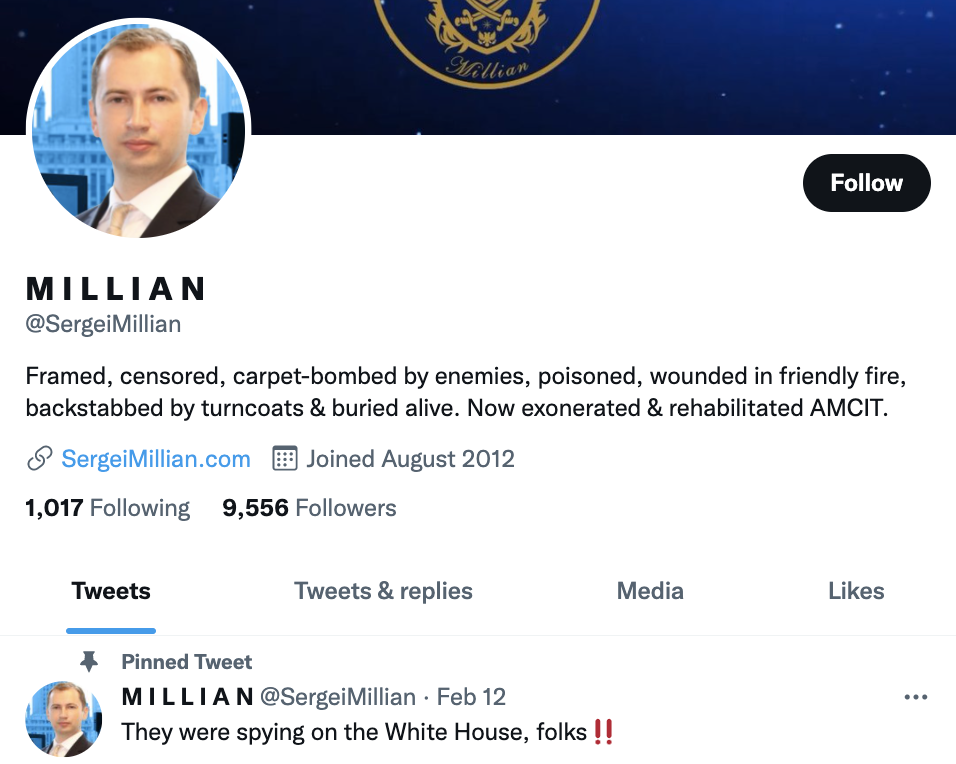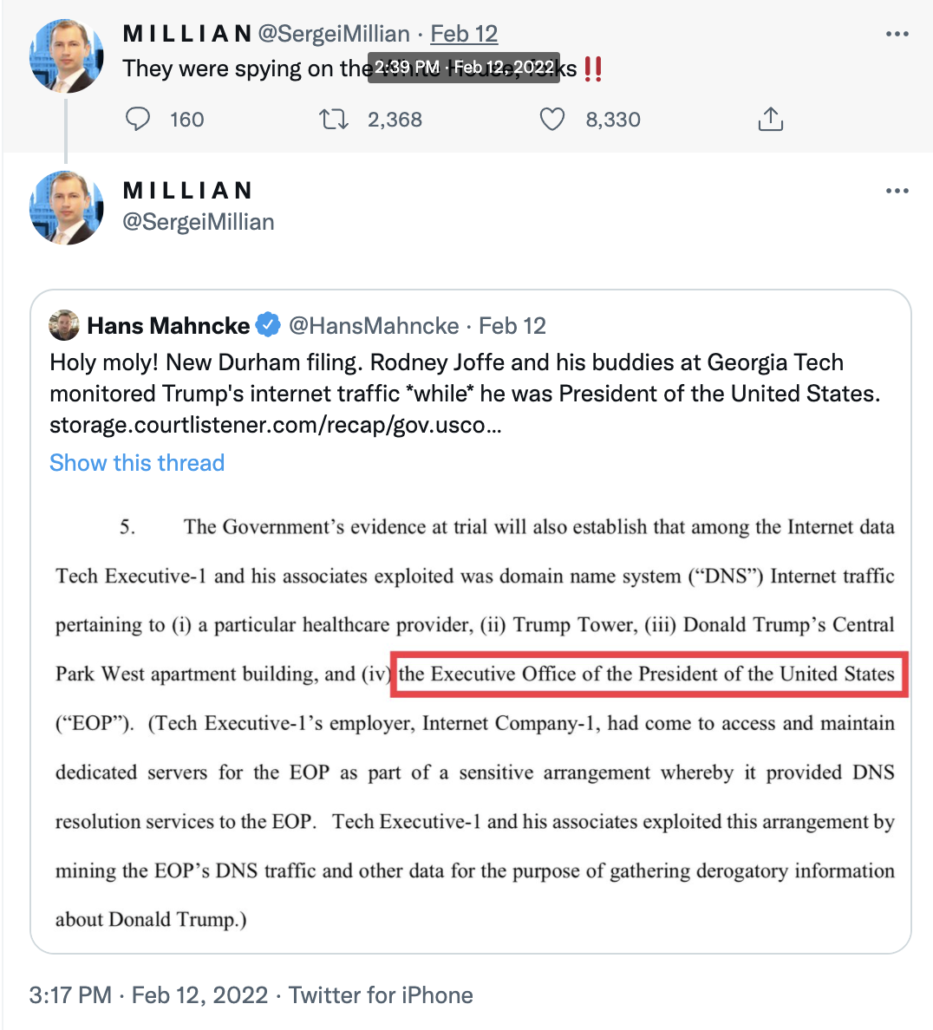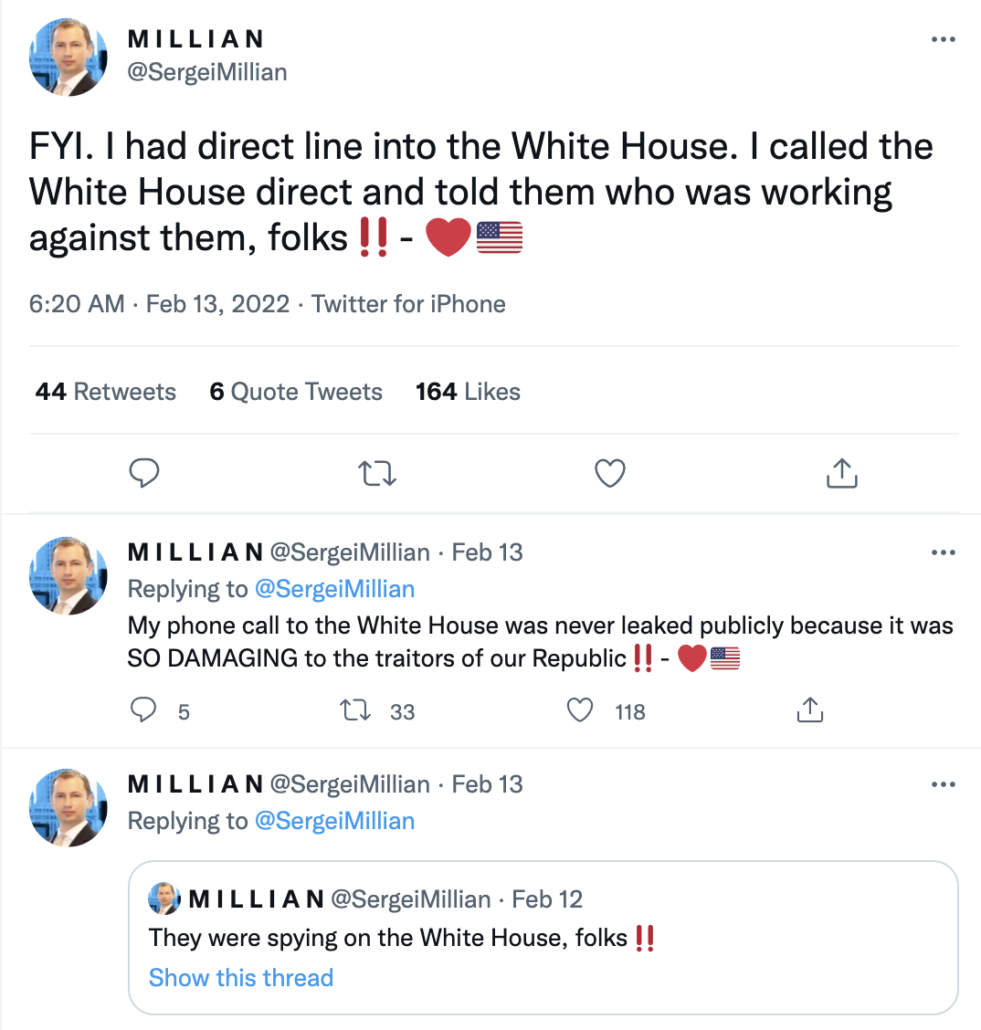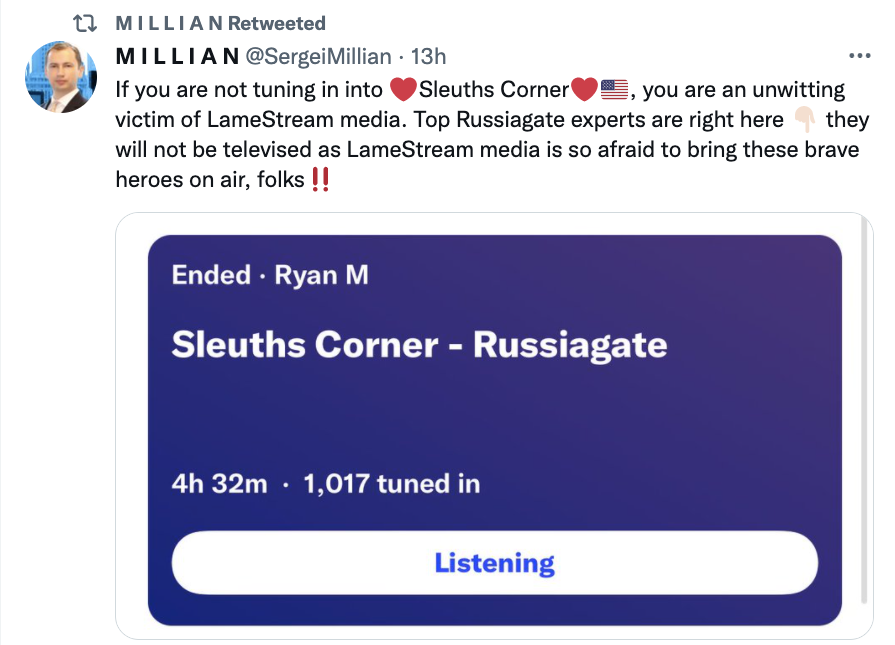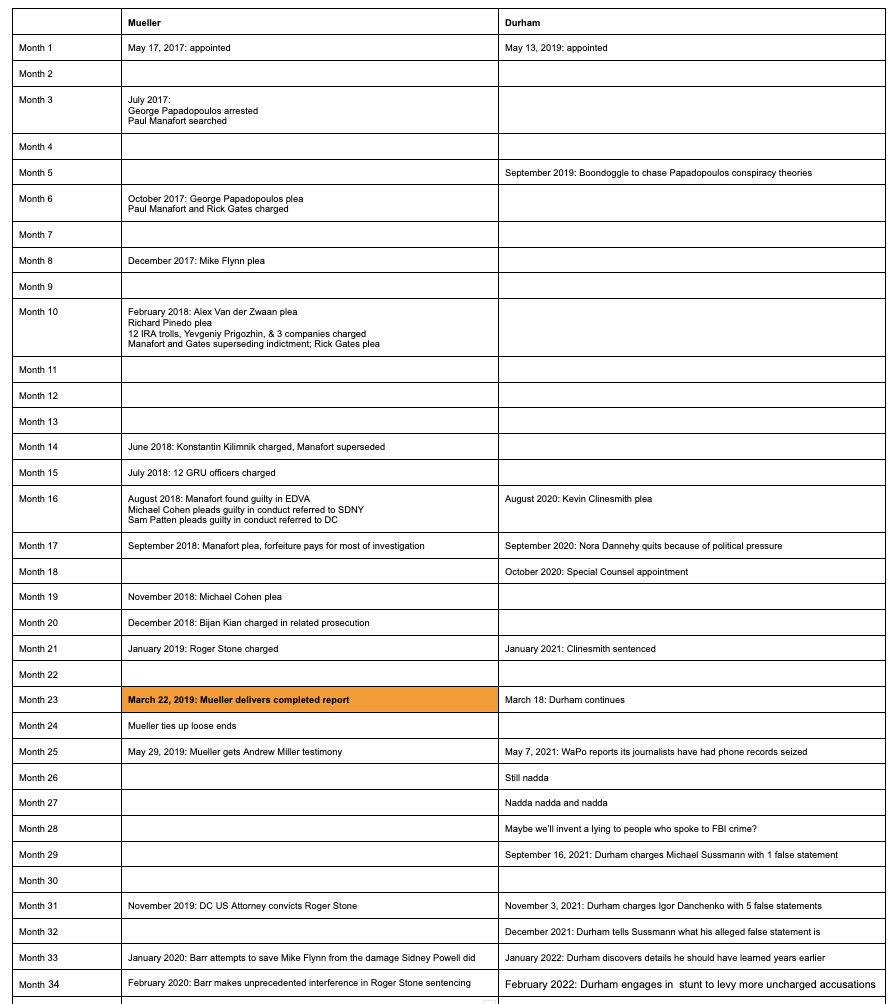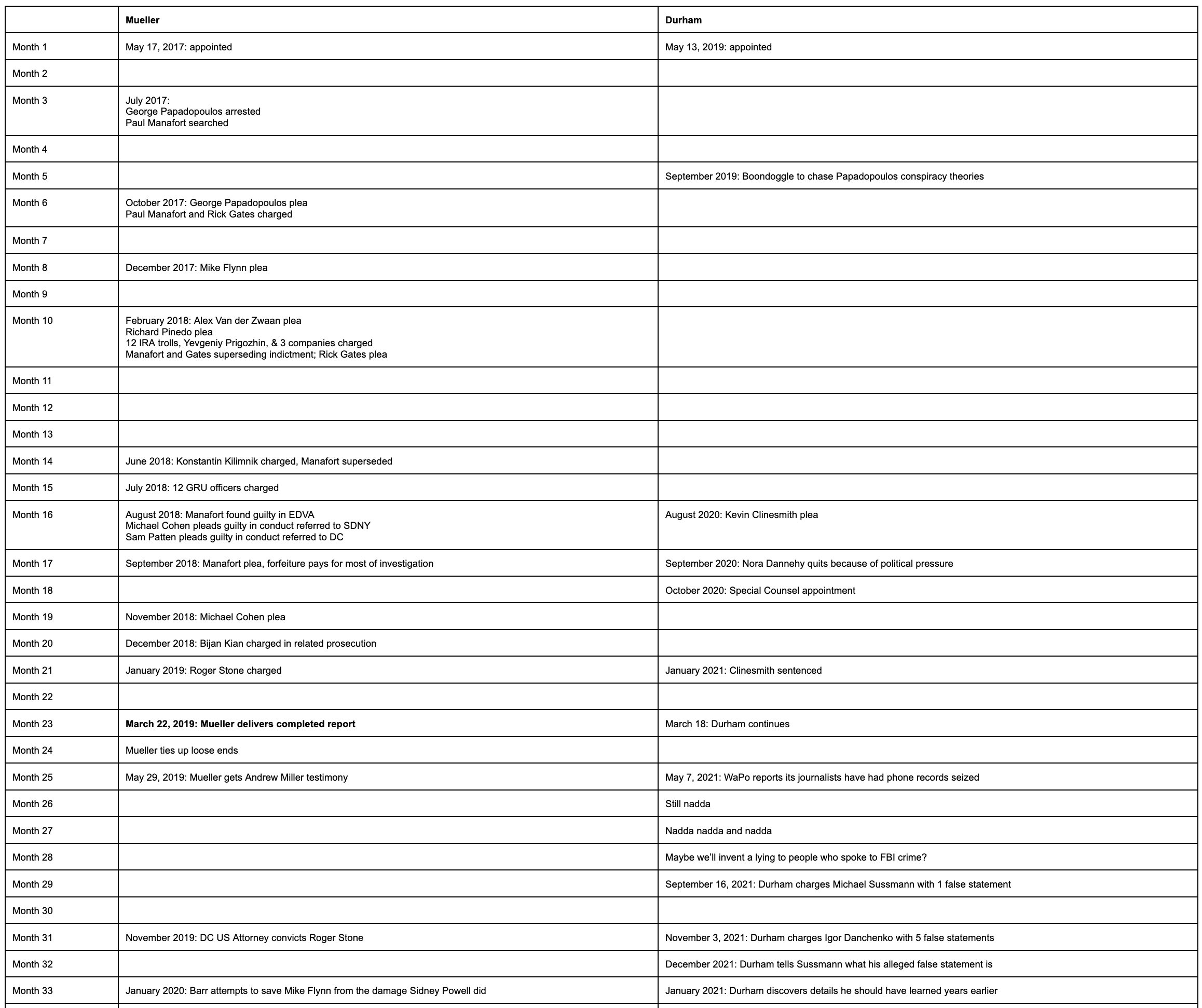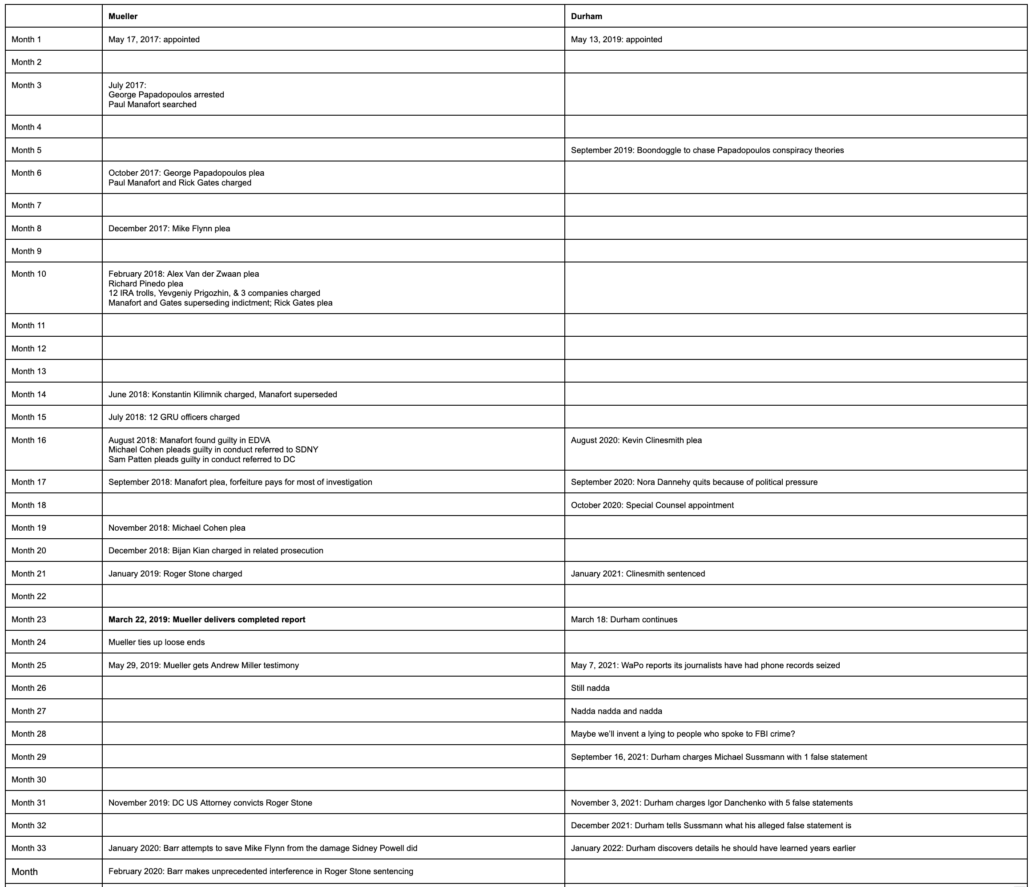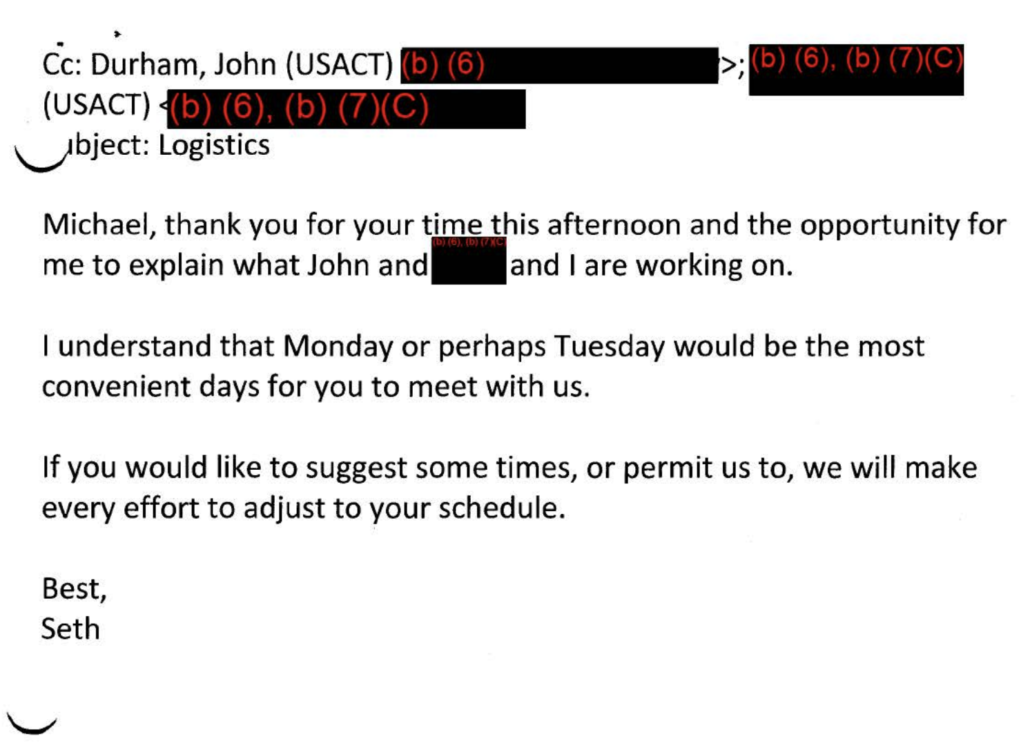Wall Street Journal: Bigger Dupes of John Durham or Alexsej Gubarev?
The Wall Street Journal claims they’ve cracked the Steele dossier!
In a 4,300-word romantic comedy, they claim that, “many of the dossier’s key details originated with a few people gossiping after they had been brought together over a minor corporate publicity contract.” There are several incorrect aspects of this fairy tale.
First, WSJ claims that, “the [Igor Danchenko] indictment pointed to Mr. Dolan as an important source for the dossier.” Even assuming the allegations in the indictment were accurate (some are not), that’s not what the indictment claims. It alleges that Dolan was the source for the perhaps most verifiably true claim in the dossier (which is not surprising given that Dolan told the FBI he simply repeated a news story). It suggests, as part of uncharged materiality claims, that Dolan may have played a part in but does not charge that he was the direct source for three other reports. That doesn’t make him “an important source” (though I’m sure Durham is happy he duped some reporters into making that claim).
Here’s how WSJ credulously takes the most spectacular of those materiality claims and repeats it, all without explaining that in the FBI interviews they otherwise cite repeatedly, Danchenko attributed the kompromat claim to Sergey Abyshev, who confirmed that he and Ivan Vorontsov met with Danchenko on that trip to Moscow.
One of Mr. Danchenko’s chats with Mr. Dolan appeared to figure in the dossier’s most inflammatory entry.
Mr. Dolan was helping to organize a fall 2016 conference in Moscow to drum up foreign investment. While in Moscow in June to lay the groundwork, he stayed at the Ritz-Carlton, a few hundred yards from the Kremlin. He met with the hotel’s general manager and got a tour of the hotel, including the presidential suite, according to the indictment of Mr. Danchenko. It says he also met with Mr. Danchenko, who was in town.
Less than a week later, Mr. Steele’s first dossier chapter alleged that a “Source D,” described as a close associate of Mr. Trump, had said Mr. Trump once hired prostitutes to urinate on the bed when he stayed in the Ritz-Carlton’s presidential suite, because former President Barack Obama, whom the dossier said Mr. Trump detested, had stayed there.
The dossier said the Kremlin had video and was holding it as kompromat, or compromising material. It said the episode had been confirmed by a senior member of the hotel staff and a female hotel staffer.
Prosecutors noted that the dossier reflected some details Mr. Dolan had learned on the hotel tour, such as that Mr. Trump had stayed at the hotel’s presidential suite.
Telling Danchenko that Trump had stayed at the Ritz — if that is where Danchenko learned that detail — is not serving as the key source here. Maybe Danchenko did make more of what Dolan told him, maybe Danchenko or Steele turned Dolan into Source D, but Durham has neither alleged nor charged it.
I’m sure he loves when reporters insinuate that he did, though.
Meanwhile, by claiming they’ve cracked the dossier with its “minor corporate publicity contract” story, WSJ misrepresents the relationship between Danchenko and someone who is an important source of the dossier, Olga Galkina. She played a part in more claims in the dossier than Dolan and those claims were far more important. Those include the most important one used in the Carter Page FISA application, the discredited Michael Cohen in Prague stories, as well as one of the claims that Durham suggests Dolan was involved with. WSJ suggests Danchenko only started obtaining information from her in the context of her relationship with Dolan.
What brought Mr. Danchenko, Mr. Dolan and Ms. Galkina together was a marketing campaign—funded by the Dolan PR client whose company was cited in the dossier.
He was Aleksej Gubarev, a Russian internet entrepreneur living in Cyprus, who decided in early 2016 to launch a U.S. marketing campaign to burnish the image of his cloud server company.
That’s affirmatively misleading, because Danchenko was using Galkina as a source before he ever formally met Dolan. In Danchenko’s interview, for example, he describes using Galkina as a source for other projects. “[Danchenko] has been able to collect information for Orbis across a wide range of topics — major Russian firms; Russian state entities, including the Kremlin.” Importantly, Galkina knew that Danchenko worked in business intelligence and even tried to task him in the period after the dossier became public.
Having therefore misrepresented the relationship between Danchenko and Galkina, WSJ repeats a second time that many of the claims in the dossier came from “this route,” meaning the PR relationship.
Mr. Danchenko told the FBI of other people he also spoke to in gathering information for Mr. Steele. Many of his details, however, came through this route, the Journal’s review shows.
The spreadsheet the FBI used to vet the dossier identified well over a hundred discrete claims in the dossier. Durham alleges that Chuck Dolan was the source for one claim and involved with part of the sourcing for three others. That’s not “many” out of a hundred. So once you correct for WSJ’s false claims about the Galkina relationship, that claim too falls apart.
Crazier still, WSJ makes no mention of the reason the newly formed relationship between Galkina and Dolan was important — and important to at least one of the central false claims in the dossier. As the indictment describes, that relationship allowed Galkina to use Dolan’s access to the Kremlin for her own benefit.
b. Additionally, on or about July 13, 2016, [Galkina] sent a message to a Russia-based associate and stated that [Dolan] had written a letter to Russian Press Secretary-1 in support of [Galkina]’s candidacy for a position in the Russian Presidential Administration.
Dolan used his ties to Dmitry Peskov to help Galkina. That’s the import of the relationship! But if you acknowledge that, then a key premise of the story, most notably its claim that, “much of the dossier’s information came from [] anything but Kremlin insiders,” falls apart because it presents the possibility that the Cohen in Prague story came from Peskov.
Dmitry Peskov is the quintessential Kremlin insider. He also knew firsthand that Donald Trump was lying on the campaign trail to hide a secret conversation Michael Cohen had had with Peskov’s own office in January 2016. Dolan helped Galkina get closer to Peskov. And after that happened, when Danchenko asked Galkina for information on a number of Trump flunkies, Cohen’s name is the one that Galkina “almost immediately” recognized. If Peskov was involved in all that, then it explains a great deal about the most damning claim in the dossier.
Peskov’s name doesn’t appear in the WSJ story.
Another name that doesn’t appear in the WSJ is Oleg Deripaska’s, even while WSJ puzzles over whether the dossier was intentionally filled with disinformation.
One remaining riddle is whether the dossier’s misinformation was purely careless or might have included disinformation sown by the Kremlin itself.
WSJ cites the DOJ IG Report on Carter Page repeatedly, so they know all the references to Deripaska in it (though perhaps not the declassified footnotes reporting that Deripaska, whose associate Konstantin Kilimnik played a key role in the election interference operation, may have learned of the dossier project by early July). But they’re silent on Danchenko’s earlier tasking to collect on Paul Manafort for Deripaska, which is at least as central to understanding the dossier as the ties between Dolan and Galkina.
Mr. Danchenko’s work for Mr. Steele, which had mostly involved business intelligence, also took a turn toward politics. Mr. Steele, a former agent in Russia for the British intelligence agency MI-6, asked Mr. Danchenko to work on a new assignment Mr. Steele had accepted: to look for compromising material on Mr. Trump in Russia.
It’s like WSJ made a conscious decision not to name any of the sanctioned Russians who played a role in the dossier.
Perhaps it is unsurprising, then, that the WSJ journalists who claim to have cracked the dossier make several false claims about the Mueller investigation.
But Mr. Mueller reported no evidence that the campaign conspired with Russia’s military intelligence apparatus as it hacked into the email of the Democratic National Committee. The dossier took real events, such as the visit of a Trump adviser to Moscow, and expounded on them by describing meetings with high-level Kremlin officials for which no corroborating evidence surfaced.
It’s actually false that there was no corroboration for the Igor Sechin claim. The son of the guy who hosted Carter Page in Moscow described hearing the rumor too (and also described that they couldn’t account for all of Page’s time in Moscow).
Crazier still, it takes a special kind of incompetence to assert, as fact, that, “Mueller reported no evidence that the campaign conspired” with GRU, basing that claim on a report on Bill Barr’s letter to Congress that a judge subsequently ruled lacked candor. Mueller found evidence that the campaign conspired with Russia, just not enough to charge. He also got verdicts or rulings that Michael Cohen lied about his secret communications with Peskov (in which Cohen said he’d be happy to chase a real estate deal relying on a former GRU officer as broker), the Coffee Boy lied about getting advance notice of Russia’s plans, Manafort lied about passing polling data and campaign strategy to Kilimnik, and Mike Flynn lied about his attempt to undermine sanctions on Russia. The Mueller Report also revealed that “a Section 1030 conspiracy charge against Stone,” and the GRU was, “the subject of ongoing investigations that have been referred by this Office to the D.C. U.S. Attorney’s Office” (though Barr buried this detail in the 2020 election); a referral for further investigation of a hacking conspiracy is the opposite of finding no evidence of a conspiracy. And a jury found that Stone had lied to cover up what his real ties to the Russian operation were.
I mean, seriously, it’s 2022. No legitimate journalist has an excuse for sounding like a Seth Rich truther, as WSJ’s two journalists do.
So the WSJ doesn’t mention Peskov and doesn’t mention Deripaska. It does, however, mention Aleksej Gubarev, who seems to have enthusiastically participated in a misleading story claiming that his contractor, Dolan, and his employee, Galkina, were singularly responsible for the dossier.
Mr. Gubarev’s company flew Mr. Dolan and two KGlobal colleagues to Cyprus in July 2016 and put them up at the Four Seasons hotel so they could deliver a sales pitch, Mr. Gubarev said. With Mr. Trump clinching the Republican nomination in the U.S., the talk in Cyprus wandered into politics.
[snip]
Mr. Gubarev said he learned about the report when a friend sent him a link to the BuzzFeed article. Mr. Gubarev said that at first he didn’t take it seriously, writing an email to Mr. Dolan with a smiling emoticon in the subject line and saying “need to found out who is make this stupid report.”
Mr. Dolan told him he thought the report might get traction in public. “It will have some legs with the sex allegations,” he wrote
Mr. Gubarev had declined to renew the publicity campaign for which he hired Mr. Dolan, saying he expected more for the $75,000 his company spent. But after the dossier’s publication, Mr. Gubarev hired Mr. Dolan again, this time to fight off the bad press, as Western banks were moving to cut his credit lines.
Mr. Gubarev said Mr. Dolan told him that Mr. Danchenko likely had compiled the dossier for Mr. Steele.
Mr. Gubarev sued BuzzFeed and Mr. Steele, lodging defamation claims in Florida and at the High Court in London.
[snip]
Mr. Gubarev said he was shocked that the indictment pointed to Mr. Dolan as an important source for the dossier. He said Mr. Dolan did a good job helping him fight to clear his name. “He is a nice guy, he did his best,” Mr. Gubarev said. “Washington is a strange place that I don’t understand.”
WSJ repeats all these Gubarev claims without noting that his lawfare was just one part of an extended campaign of lawfare, one that involves people like Petr Aven and Yevgeniy Prigozhin with known direct ties to and taskings from Putin.
In a story that openly wonders about instruments of disinformation, you’d think they’d be a bit more curious about why Gubarev would participate so enthusiastically. But then, a story that claims to explain, “how the Steele dossier was created,” by ignoring Deripaska’s pre-existing relationship with Steele and four of the most important sources for it is itself a vehicle of disinformation.
Update: In related news, Durham wants another month extension on classified discovery; the people they need help from are too busy indicting Russian foreign agents, including one who discussed that FARA was a “problem” with an employe of one of Durham’s star witness, Sergei Millian. Danchenko objects to the delay.
However, recent world events continue to contribute to delays in the processing and production of classified discovery. In particular, some of the officials preparing and reviewing the documents at the FBI and intelligence agencies continue to be heavily engaged in matters related to overseas activities. Nevertheless, the Government is continuing to press the relevant authorities to produce documents in classified discovery as quickly as possible and on a rolling basis, and no later than the proposed deadline set forth below.
Durham claims there are only 5,000 still-classified pages in discovery.
To date, the Government has produced to the defense over 5,000 documents in classified discovery and nearly 61,000 documents in unclassified discovery. The Government believes that the 5,000 classified documents produced to date represent the bulk of the classified discovery in this matter.
For the reasons laid out in this post, I find that spectacularly unbelievable.
The original deadline was March 29. They want the deadline extended to June 13, which would be a 76-day extension.


